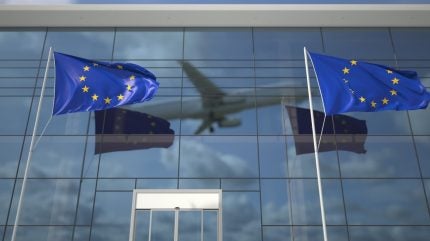
IATA is hoping to persuade the European Commission and EU member states to reconsider potential new rules on monitoring, reporting and verification (MRV) of non-CO2 emissions.
The body, which represents global airlines, told Airport Technology its members are “very concerned” with aspects of the proposed rules, which are currently going through the bloc’s consultation stages.

Discover B2B Marketing That Performs
Combine business intelligence and editorial excellence to reach engaged professionals across 36 leading media platforms.
The crux of IATA’s argument is that methods used to measure non-CO2 emissions are not as firmly understood as those to measure carbon dioxide.
“Due to current limitations in measuring the impact of individual contrails, MRV schemes for non-CO2 emissions today will be incomplete and unlikely to represent reality or result in a reduction of aviation’s climate impact. The science around non-CO2 impacts is highly uncertain and evolving rapidly,” a spokesperson said.
While the global aviation trade group stopped short of contesting the need for such measures, it quoted a Royal Society of Chemistry research paper which warned against “recommending definitive courses of action until there is better quantification of the actual effects, and further studies of the tradeoffs between non-CO2 reductions vs. potential CO2 increases”.
Other groups, including the lobby group Transport & Environment, described IATA’s concerns as “delay tactics” and said non-CO₂ emissions “were recognised as a climate problem 25 years ago”.

US Tariffs are shifting - will you react or anticipate?
Don’t let policy changes catch you off guard. Stay proactive with real-time data and expert analysis.
By GlobalDataIATA also argued that the EU’s global approach to MRV was outside of its jurisdiction, and instead called for worldwide bodies such as the International Civil Aviation Organization to lead on net zero goals.
“IATA and its members urge the EU to focus its efforts on helping the industry decarbonise as rapidly as possible, while at the same time assisting in global collaborative efforts to better understand non-CO2 effects through rigorous atmospheric data-collection and better scientific understanding with a view to develop mitigation measures,” the spokesperson added.





